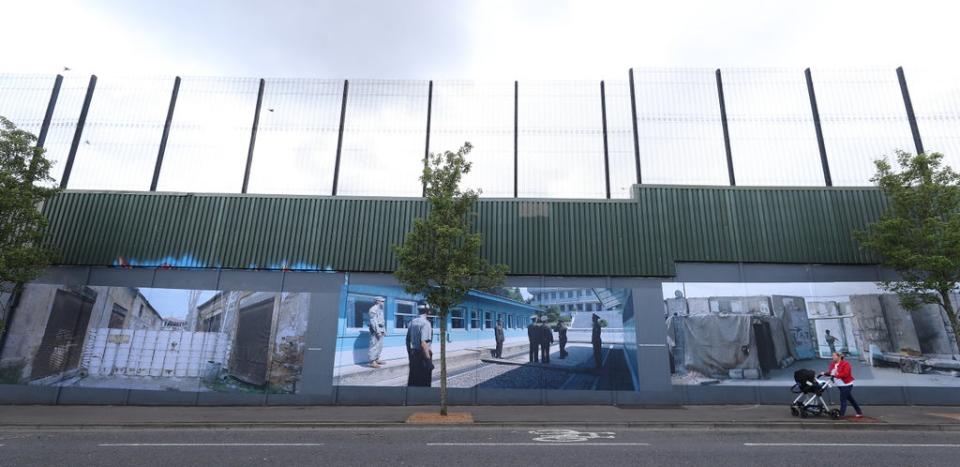Number of Department of Justice-owned interface structures down to 43, MLAs told

The number of peace wall structures owned by Northern Ireland’s Department of Justice has reduced from 59 to 43 in recent years, MLAs have heard.
DUP Junior Minister Gary Middleton said a number of other structures at the region’s interfaces have also been “reduced in nature” while opening times at some interface gates have been extended.
He was responding in the Stormont Assembly to a question on progress from Sinn Fein MLA Gerry Kelly.
Mr Middleton said the Department of Justice leads work on the interface programme.

The Executive’s Together Building a United Community (TBUC) strategy pledges to reduce, and remove by 2023, all interface barriers.
“The Executive remains committed to working towards the reduction and removal of all interface security structures and we look forward to seeing more progress in that area,” he said.
Mr Middleton said the agreed 2021/22 Executive budget includes funding of £12 million for good relations.
“The TBUC strategy itself includes targeting and removing of all interface structures by 2023,” he said.
“This year a further £600,000 has been allocated for the removal of all interface barriers so in total over £6.3 million has been allocated across the TBUC headline actions.
“A wide range of programmes contribute to progress on the interfaces and it is something which the department will continue to progress as we move forward into the new mandate.”
The barriers which separate unionist and nationalist communities across Northern Ireland vary from tall walls and steel gates to fences and were erected at different stages from 1969 to the 2000s in an attempt to stem disorder.
They are owned by a number of agencies, including the Department of Justice and the Housing Executive.
Read More
Belfast: Kenneth Branagh’s most intimate and deeply felt film yet
Julia Bradbury says she had mastectomy as she updates from hospital
Father-of-three shot dead in car park remembered as ‘hard-working family man’

 Yahoo News
Yahoo News 